For many women, by the time they are in their 40s, the career they started in their 20s feels like a dress that no longer fits.
According to job site SEEK New Zealand, career diversification is now standard in our society, with almost 80 per cent of women working in a different career than intended when leaving school (compared with 68 per cent of men).
SEEK’s general manager Janet Faulding says 76 per cent of New Zealanders are actively looking or “monitoring the market for a new job”, so wanting to change direction is nothing abnormal.
“Don’t beat yourself up if your current job doesn’t fit your lifestyle or interests anymore,” says Faulding.
She says the most important aspect to consider is what you are prepared to do to create a successful new career – relocation, study or a drop in income. But changing career isn’t as simple as unzipping one frock and stepping into a new one.
We talk to four women about the successes and pitfalls of following their dream, and get the inside scoop on how to go about it.
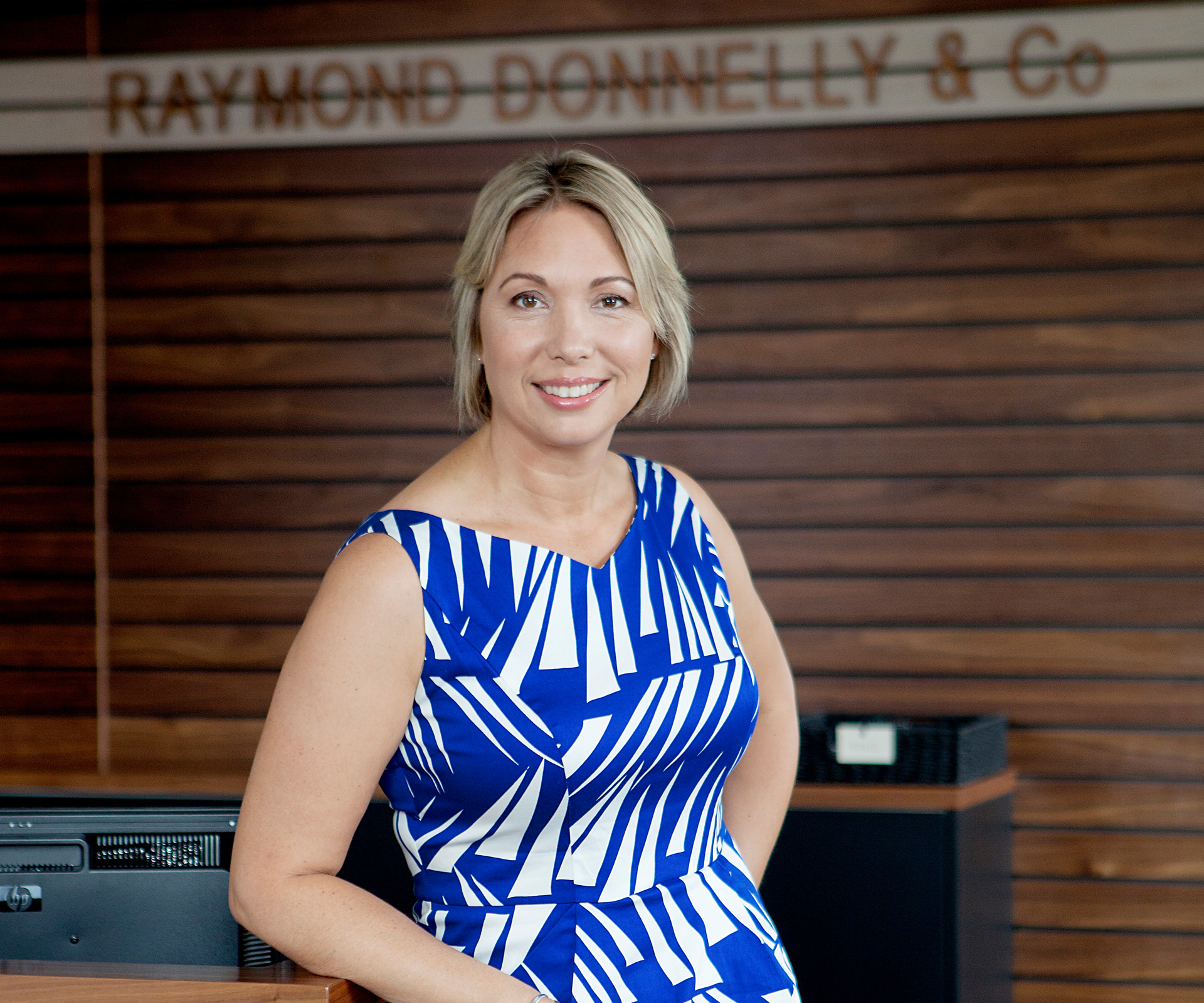
**Nicola Pointer, 43
From beauty therapist to Crown prosecutor**
It was a lifelong love of criminal pathology books that sparked Nicola Pointer’s passion for criminal law. But it wasn’t until she was 30, with two young kids, that she admitted she was bored. At the time Pointer worked in her own beauty salon and lectured at a Christchurch beauty school. Surely, she thought, there’s more to life than this?
Hungry for change
Thirteen years on, she is a Christchurch-based Crown prosecutor, juggling work and family. She has two teenagers, Ben, 19; and Olivia, 17, with Julian, her software engineer husband.
Pointer was born in Hokitika and grew up there and in Greymouth, where her father was a police prosecutor and her mother a teacher. She’d considered joining the police or studying broadcast journalism, but when a beauty therapist set up in town, 17-year-old Pointer’s interest was piqued.
“I never thought of myself as clever. I was a shocking speller. It never occurred to me to do something like law.”
After 12 months and a series of part-time jobs, Pointer and Julian moved to England and attended Bath College, Pointer studying beauty therapy and Julian physics. Back in Greymouth two years later, Pointer borrowed $5000 from the bank and set up her first salon. She was almost 21.
Pointer married Julian at 23 and kids followed soon after. When her youngest, Olivia, was four, she began hankering for a new challenge and thought beauty therapy lecturing might be the answer. But after a year of teaching she still felt unchallenged.
“I was always tired. It was boredom; I believe you need to challenge your brain in order to get that energy.”
It was a friend who enrolled in law who planted the idea in her mind. Pointer thought ‘if she can, I can’. In 2003, she enrolled in Laws 101 at Canterbury University.
“I went with the attitude I’d probably fail the first paper, but at least I could put that idea to bed.”
But she passed that paper, and the one after that, graduating after six years (three years part-time, three full-time) with a Bachelor of Laws. Studying wasn’t without its difficulties. She recalls endless months of juggling: she’d do a client in the salon, nip out to a lecture, race back for another client, do the school run, then study late into the night.
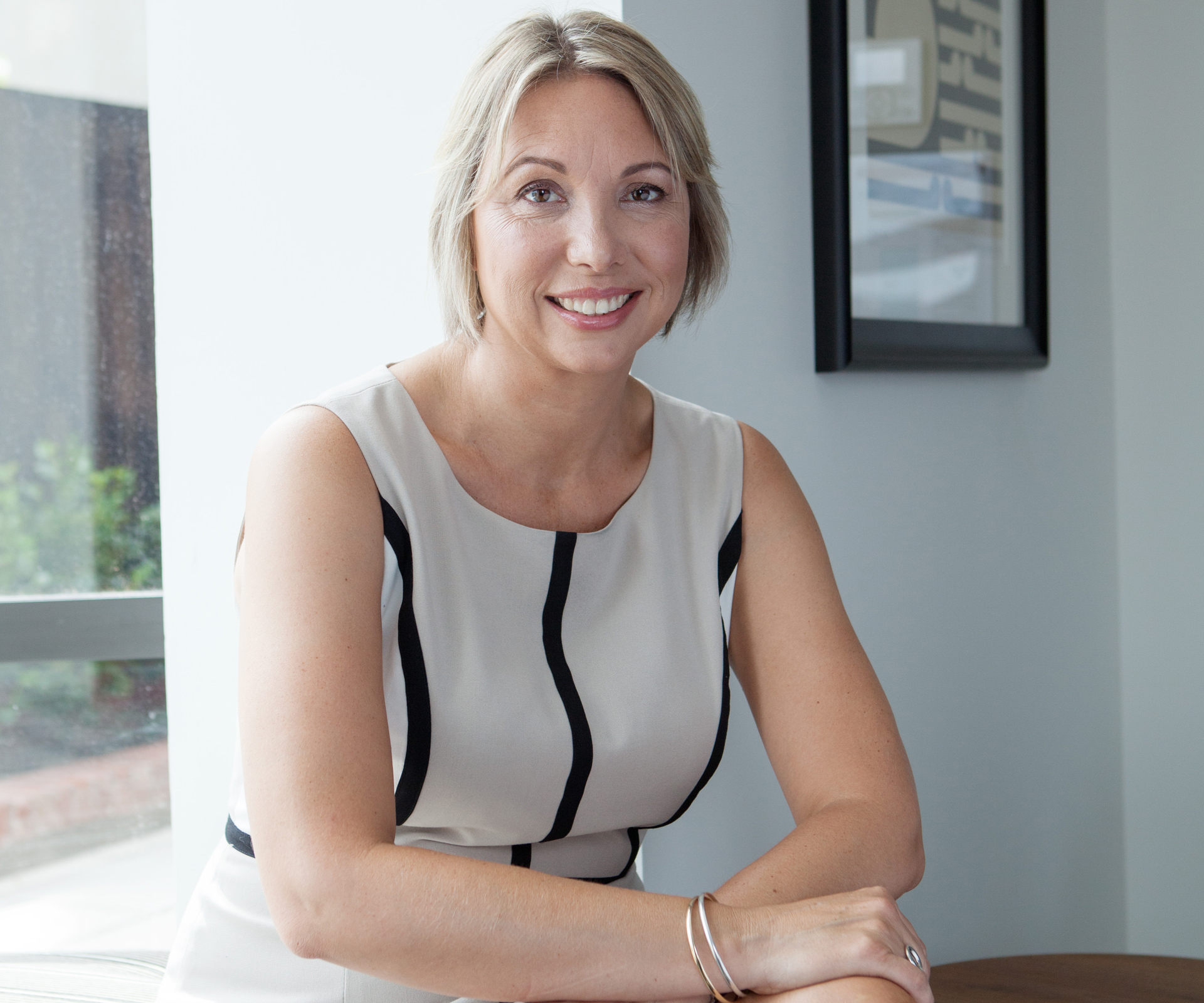
Judged… and juries
Although supported by friends and family, at times she felt judged. She recalls a particular incident at one of her husband’s work dinners.
“As soon as I said I was a beauty therapist they turned away and talked to someone else. When I said come February I’d be studying law, one person actually laughed.”
While those attitudes made her even more determined to succeed, her first job was a disaster; she felt her boss treated her like a secretary and the firm went under within a month, leaving Pointer questioning herself.
“I remember going home crying, thinking, ‘What have I done? What have I put my family through, for this?”’
The people skills and networks she’d developed as a beauty therapist and business owner helped her secure a civil position where, for two years, she worked with Christchurch earthquake Red Zone clients resolving EQC and insurance issues. Spending the next year working as a Public Defence Service lawyer reignited her passion for criminal work, and in 2014 she accepted her dream job at Raymond Donnelly & Co (the company holds the Crown Warrant to prosecute all serious crime in the Christchurch and Greymouth districts), where she remains today.
Being a junior prosecutor at 43 has its advantages; Pointer says it gives her a sense of empathy and the ability to relate to jurors, making her a fairer prosecutor. But she says it’s also not for the faint-hearted. On any given day she could be dealing with violence, murder or sex crimes.
“You have to have a certain sense of humour doing criminal law; if you can’t laugh, you’ll cry.”
Yet she’s more energised and happier with her work-life balance than in her beauty therapist days.
“I’m a better person to have around because I’m more satisfied, so my family get a better side of me.”
For those considering a career change, Pointer says if you’re prepared to work hard and have a good support network, then go for it.
“If you’re 40 you still have another 20 years-plus work ahead of you. Do you want to be miserable? Re-training seems like a long time, but it’s a short bite out of your life to give life-long satisfaction.”
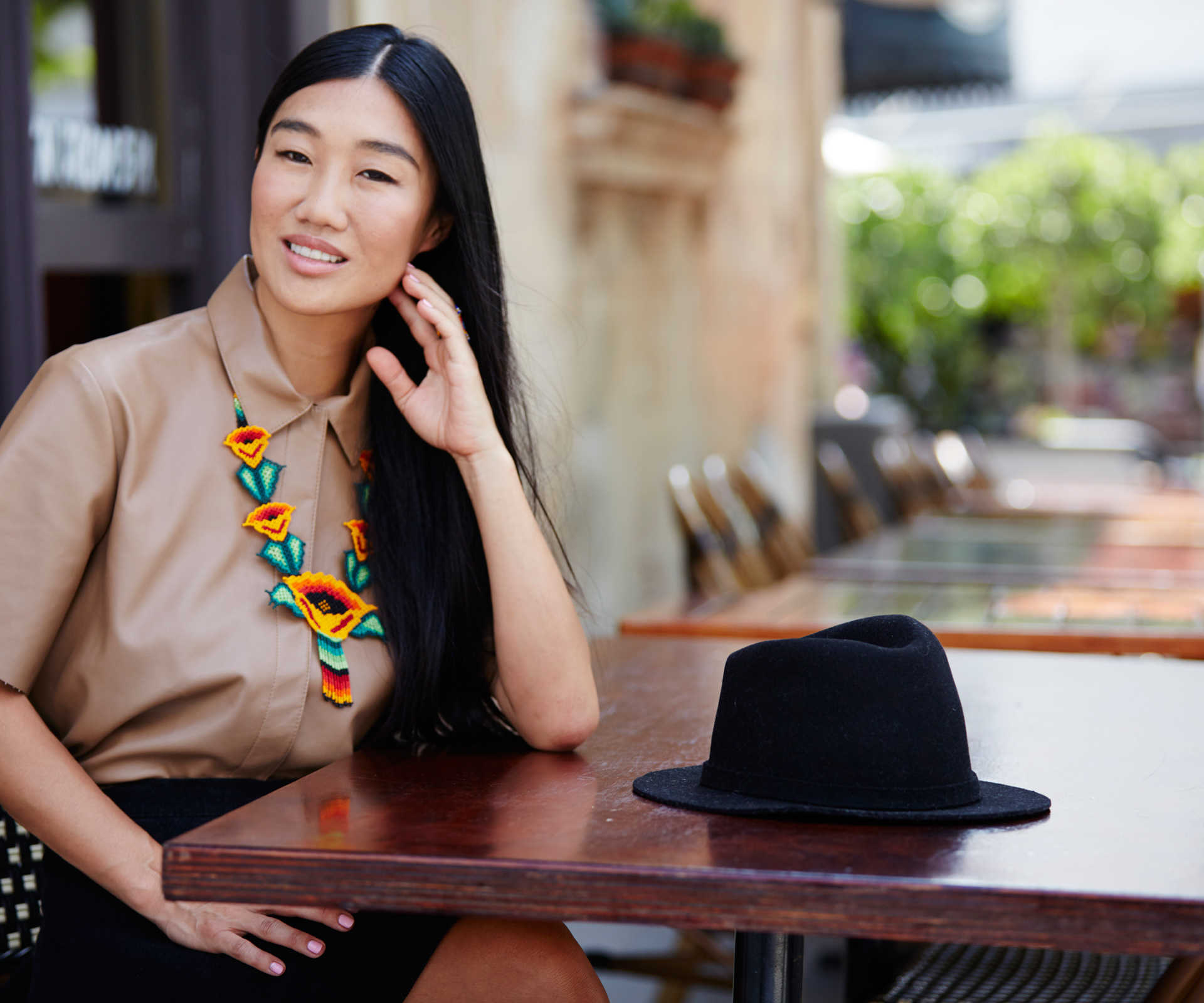
**Jasmin Chew, 40
From lawyer to beauty start-up owner**
There’s so much variety packed into Jasmin Chew’s life it’s hard to imagine how she found time to launch her start-up business: Lacues – Beauty by Nature. Chew, a successful lawyer who in her spare time loves nothing better than to travel the world, snowboarding, and surfing – has spent two decades refining and repackaging her life to achieve the ultimate work-life balance.
Crisis, what crisis?
Chew, a first-generation Chinese-New Zealander, was born in Whakatane and grew up in Kawerau with her two brothers, a GP father and a mother who was a nurse at the family practice.
The family moved to Auckland when Chew was 11, and at 13 she won a Charles Rhodes Scholarship to St Cuthbert’s College, where she was an A-student with an interest in debating and sociology. She also loved fashion and music, and was a self-confessed beauty junkie; she spent weekends scouring the beauty counters at Smith & Caughey’s.
Encouraged by her parents to choose a stable career where there would always be demand, Chew did a University of Auckland law and arts degree. She favoured human rights and Waitangi Treaty law, so accepted an environmental law job at a top-tier firm. Her career took her to Sydney where she worked for investment banks and financial institutions. The global financial crisis of 2008 was a blessing in disguise; the decrease in full-time, permanent roles meant Chew became open to alternative models of employment.
She accepted a three-month, four-day-a-week role as an in-house lawyer, a job Chew says taught her about commercial business.
“Instead of feeling like a cog in a machine there were other considerations: efficiencies, processes, streamlining, adding value. I could offer practical solutions within time and budget constraints rather than being completely academic about it.”
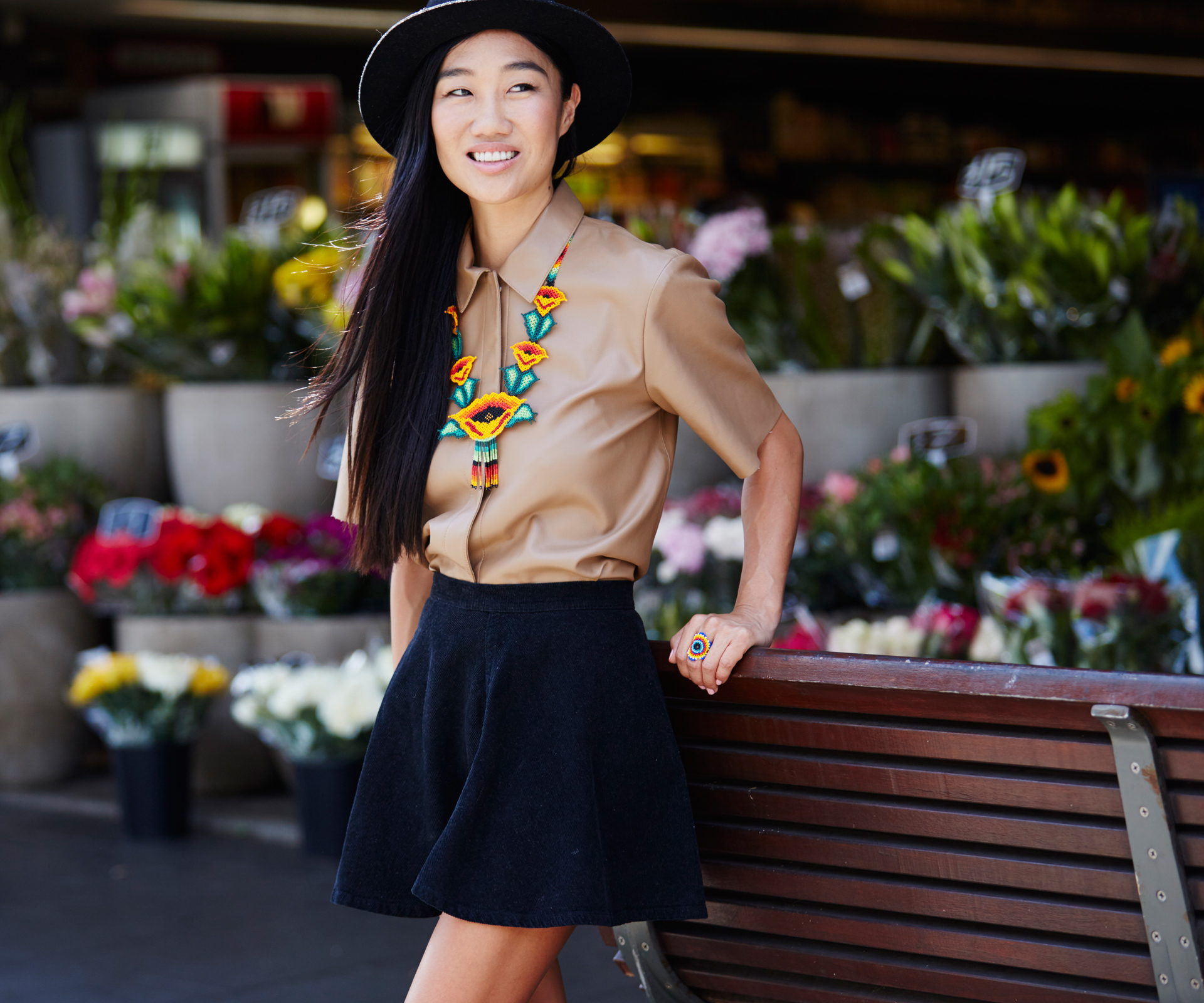
Ethics and ideas
It was also the start of Chew learning how to repackage her life. She travelled between contracts, to every continent bar one (Antarctica), and indulged her passion for surfing and snowboarding.
Living in both New Zealand and Australia had fostered an interest in indigenous people and in the ties that bind humankind together – musicology, healing, beauty rituals and medicine.
Unknowingly, Chew had been gathering ideas and ethical concepts that would later form the philosophy behind Lacues.
One Sydney summer’s day in 2007 Chew met her future business partner, a part-time model, MBA graduate and scientist. From that day forward the two women were friends, sharing their Chinese heritage, concern about pollution and a love of nature. It was over cups of herbal tea and girls’ nights in testing their homemade beauty treatments that they dreamed up the beauty range.
“I feel like I was born to do it, because it doesn’t feel like work.”
Obsession is key
The Lacues Debutante Range was launched in 2015 containing a ‘secret weapon’: kakadu plum extract, a native Australian, vitamin C-rich plant sourced from a Northern Territory aboriginal tribe.
“We wanted to make it about ethics, thinking consciously, supporting local community and promoting sustainability and fair-trade initiatives with indigenous people. We wanted to make a product consumers would choose to align them-selves with.”
Chew found her legal knowledge to be a huge asset: from understanding the Pharmaceutical Goods Act to drafting terms of trade and negotiating supplier deals. Her ability to talk to people and present in front of groups was also helpful.
She’s had to make sacrifices in order to change her life; she continues to work on fixed-term law contracts throughout Asia-Pacific so it’s not unusual for her to be effectively doing two full-time jobs, and she’s put her own capital into her business.
“When you’re creating a brand it’s non-stop. You have to be obsessed by it, and I am. Working in Singapore last year I’d work on Lacues all hours. In a paid job your eye is on the clock. That’s the difference.”
She believes that in today’s world, wages won’t get you ahead financially.
“Your salary is capped, but it is stable. I figure I have to take risks to succeed. The only way to be successful is through entrepreneurship,” says Chew.
Between contracts she makes time to focus on the other areas she enjoys: business, travel, music, people and sport. “Time is our most precious commodity. I get fulfilment from everything I find enjoy-able in life. Career is one compartment.”
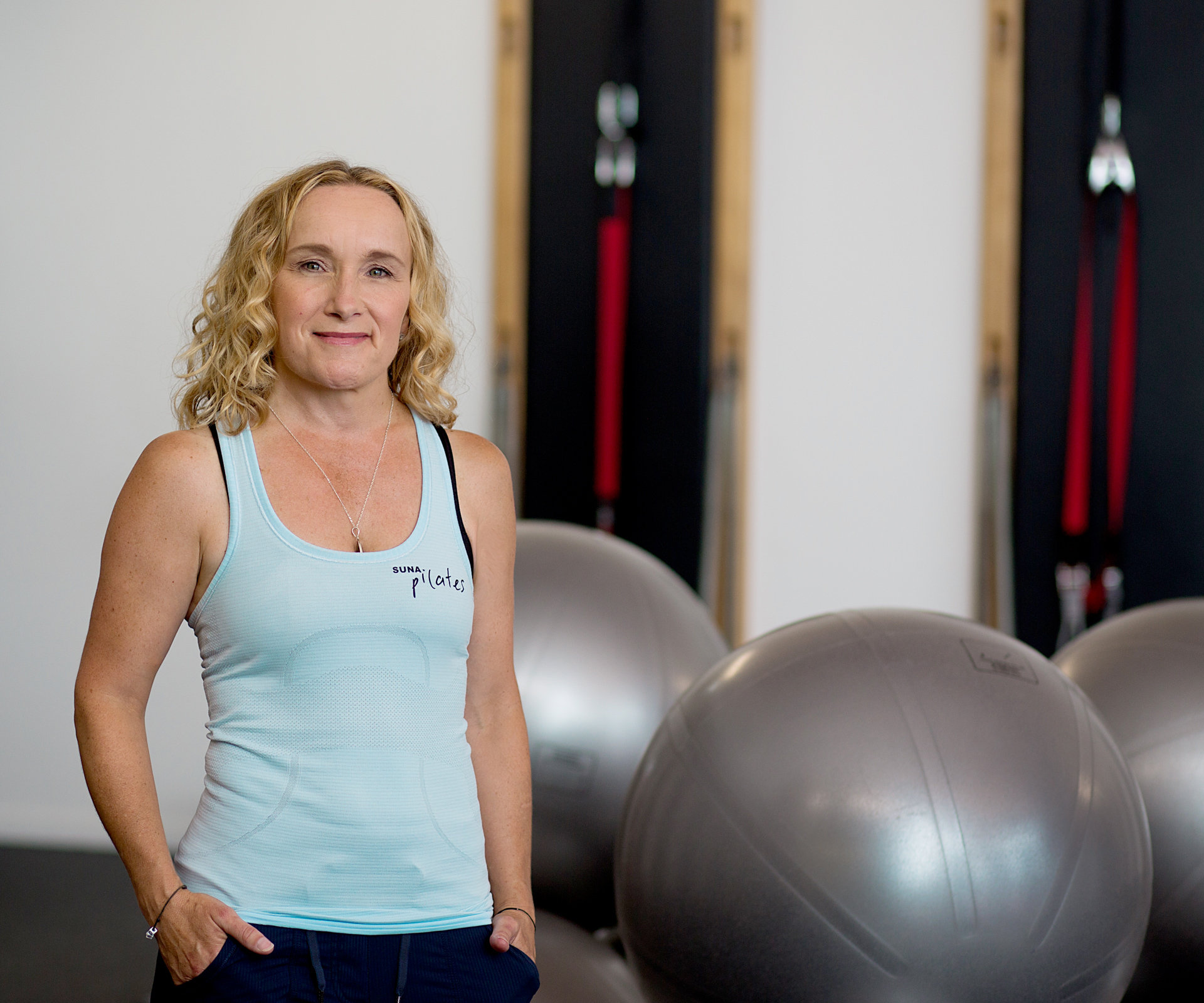
**Anna Gordon, 47
From high-flying marketer to Pilates studio**
One winter’s morning in 2003, Anna Gordon’s phone woke her from a deep sleep. It was her boss, wanting to discuss the $22 million marketing budget. It was 3am. It was the last straw.
Soon after, Gordon handed in her resignation and embarked on six months’ paid ‘gardening leave’ (where your employer grants you full pay to ensure you don’t take corporate secrets to the competition), vowing to spend it getting healthy – back and neck pain and stress headaches had become the norm.
She began taking classes at Suna Pilates in Auckland, and before long her pain had disappeared. Gordon didn’t know it, but her life was about to change forever. Fast-forward 12 years and Gordon co-owns Suna Pilates with original owner Susie Cleland. Gordon is the happiest she has ever been.
Gordon was born and grew up in London with her mother and older brother Sam. From an early age she had a passion for sport. Her mum worked three jobs to support the family, instilling in her children a strong work ethic and a sense they could achieve anything.
“My school was the fourth worst in London. It wasn’t an academic school but it taught me to be streetwise.”
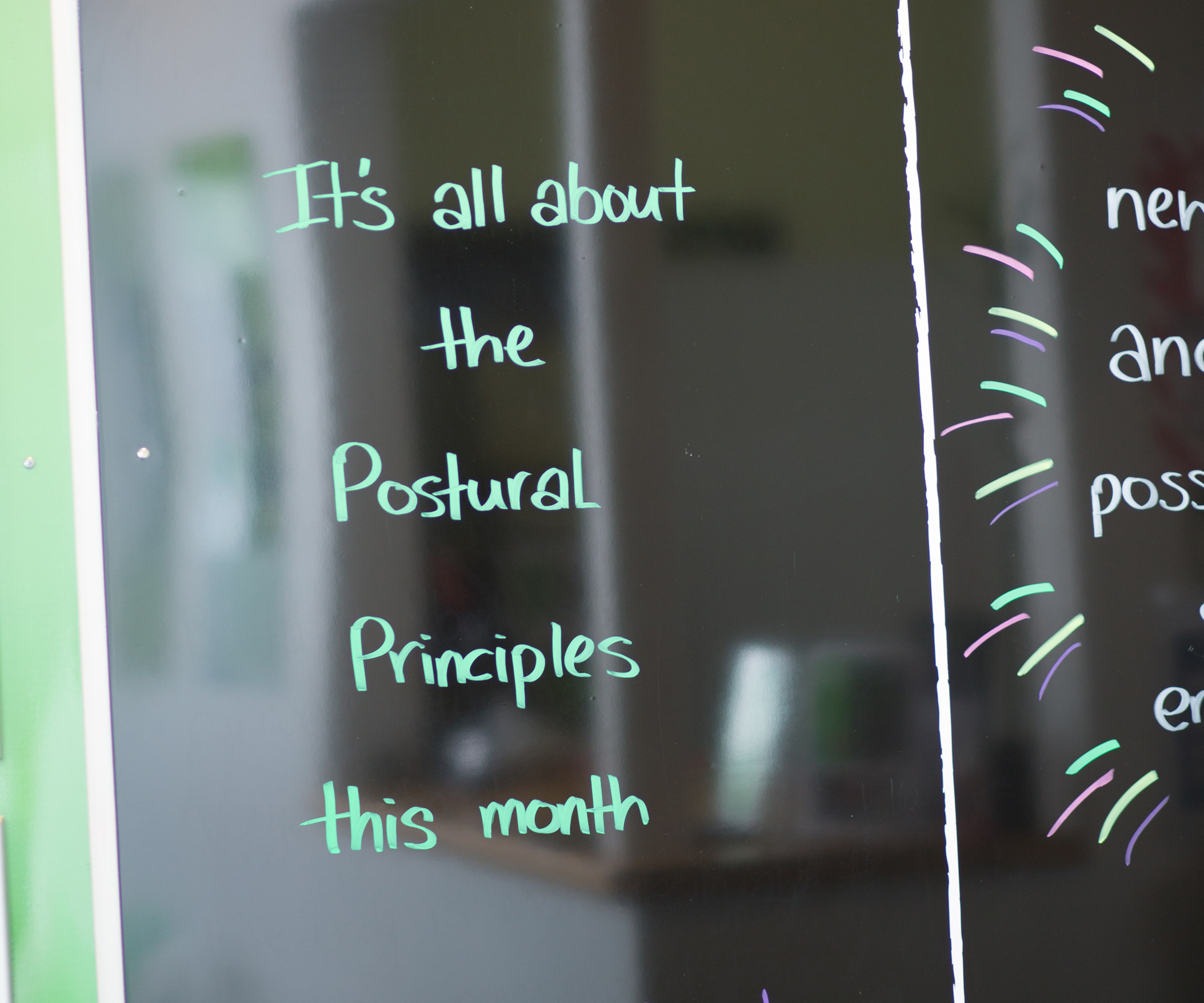
Colourful words on the wall at Suna Pilates.
Madness and money
Gordon was one of the school’s few students to gain a degree, completing an economics course at London University in 1990. She worked three part-time jobs throughout, which meant giving up weekend sport, and almost pulled out of studying after the first year.
“It was tough; 90 percent of the students were private school graduates. But after I did well in my first-year exams I thought, ‘Stuff it. I’m going to do this’.”
She spent the next eight years working in marketing at high-tech companies. In 1998 Gordon and her now-ex Kiwi husband moved back to New Zealand, where she worked at a telco as head of marketing – the only woman in a team of 10. She earned three times what she earns now, holidayed in exotic locations, and didn’t hesitate to spend $1000 on a pair of shoes. At times it felt like a game.
With the company’s change in owner-ship came an increase in pressure; it became all business and no play, says Gordon. Her health suffered and she was eventually forced to re-evaluate her life choices. After two years of soul searching she decided she had to get out of the rat race and do something that served others and achieved something good.
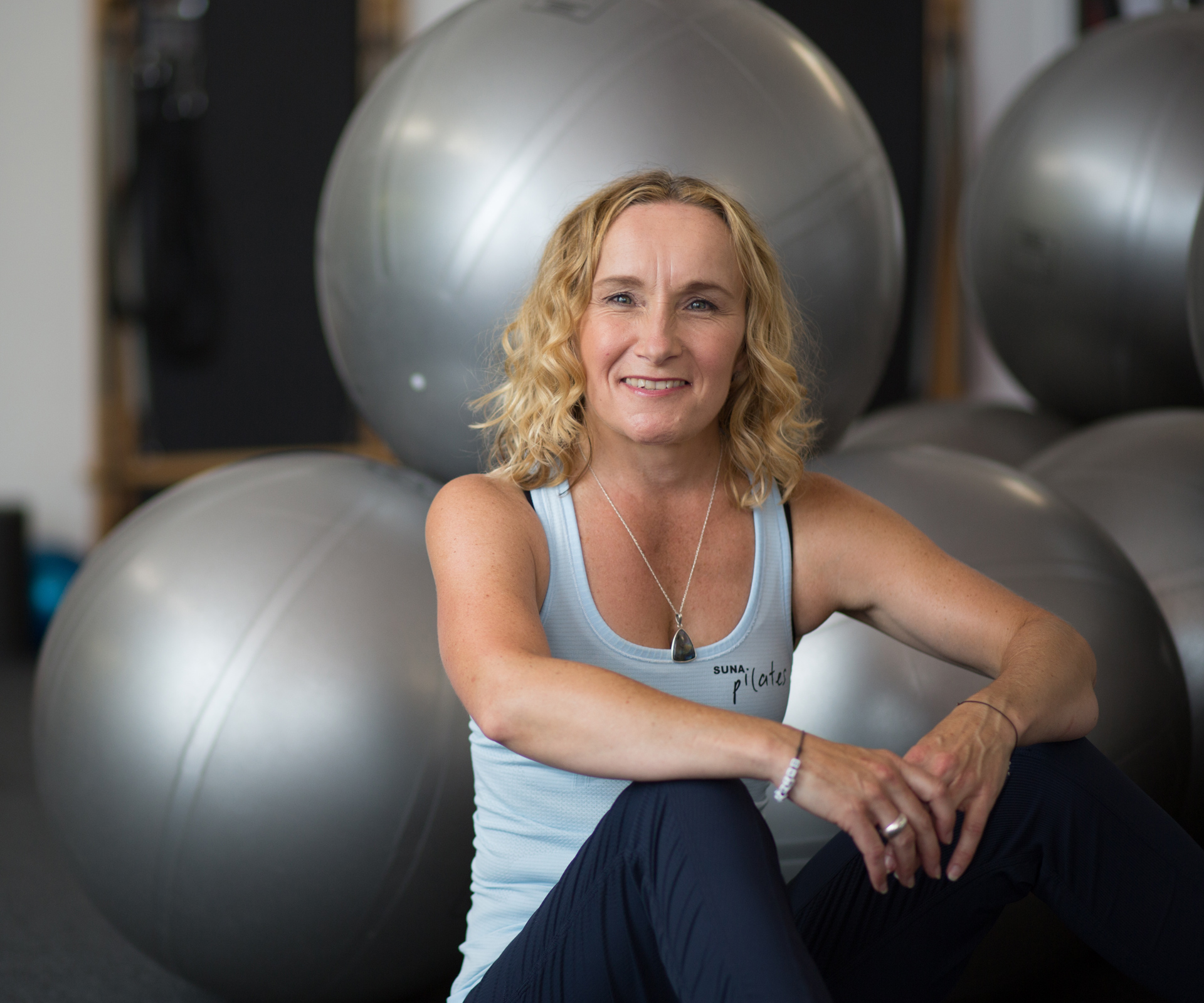
It all makes sense
In 2003, with no clue as to ‘what next’, Gordon quit her job and began to focus on her health, attending weekly classes at Suna Pilates. Soon after, owner Cleland asked her for business advice and the plates of Gordon’s world began to shift. She was feeling happier and healthier than she had done in years – her back and neck pain and headaches had disappeared, and she was enjoying returning to her love of fitness.
“It all just clicked into place. It was as if we had no control over it.” Later that year, Gordon and Cleland became co-owners of Suna Pilates, combining their complementary skills to grow the business, which now employs 14 staff.
“I run the business side to facilitate Susie doing what she does. I couldn’t do what I do without her and she can’t do what she does without me,” says Gordon.
The early days were touch and go and the business took time to make money – real money, says Gordon, not huge corporate budgets with zeros that don’t mean anything.
“If our trainers’ wages weren’t in their accounts by nine o’clock on a Monday we would know about it – I’d get a phone call saying ‘I can’t put petrol in my car’.”
Gordon and Cleland worked on all aspects of the business including areas they weren’t skilled in, such as designing (and hand-delivering) mail-outs.
“My brother thought I was crazy. He kept telling me I wasn’t running a charity and telling me to get a real job. But he has come around – now he does Pilates in Sydney!” says Gordon.
Gordon and Cleland have kids of similar ages, allowing them to be flexible with work-life balance. But a good lifestyle and being able to spend time with her two children – Isabella, 12, and Tommy, six – doesn’t mean Gordon doesn’t work hard.
“I get up at 5am and do two hours’ work before the kids get up so I can drop them to school. I could never do that as a corporate.”
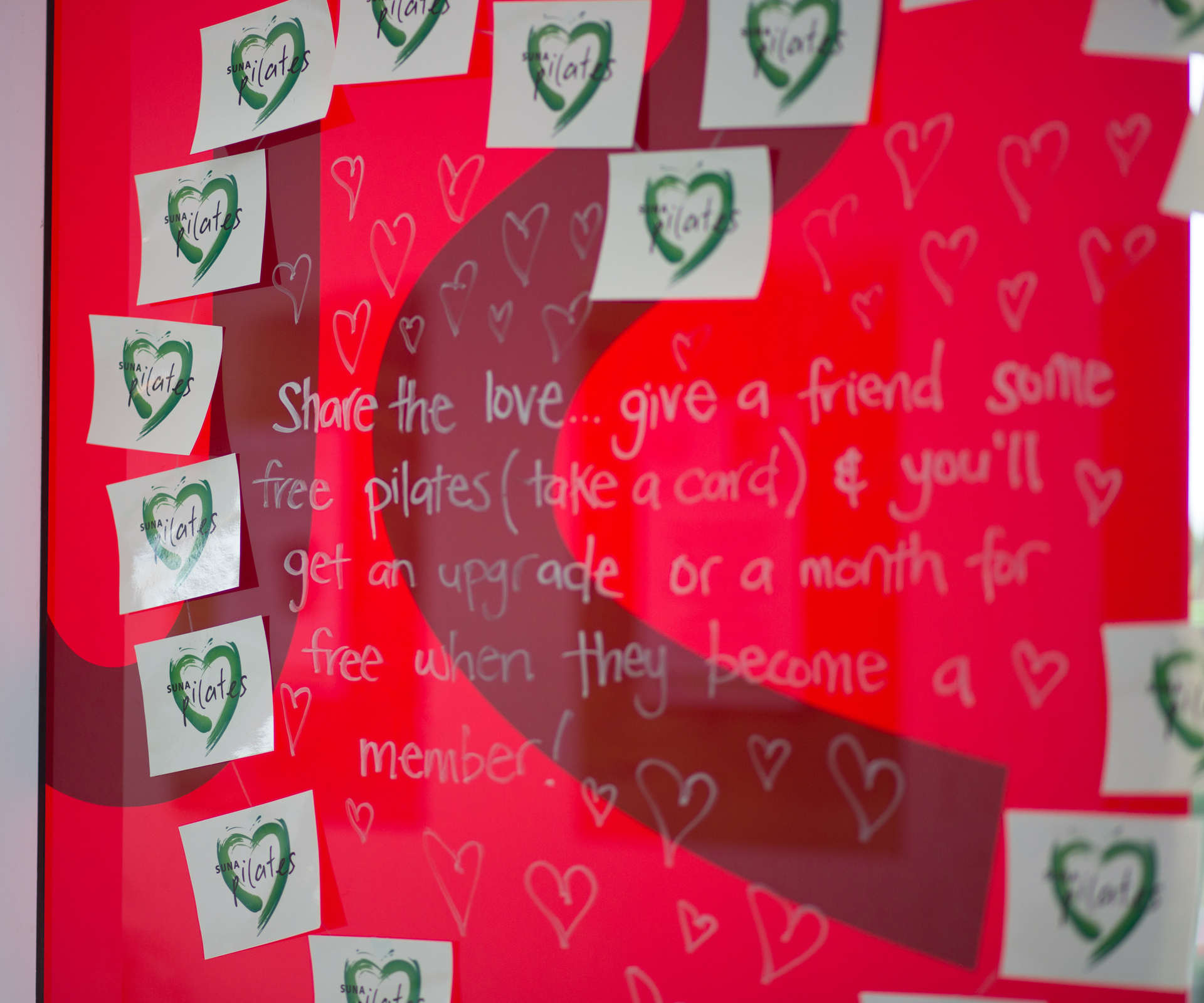
Colourful notices and words of encouragement line the walls of Suna Pilates.
A new kind of success
Gordon’s biggest mind shift is in the way she thinks about success. Where once she defined success by the amount she was paid and the number of staff she had, she now believes it’s more about being happy and doing something that makes people feel good.
“Women especially are realising it’s not fulfilling just to have a high-paying job and a fancy title if you aren’t doing something you believe in, that serves others, and is doing good.”
Gordon’s next plan is to franchise Suna Pilates and create a not-for-profit organisation to train PE teachers in Suna Pilates techniques – a scheme she believes would drastically reduce ACC claims and enhance many lives.
Her advice to those considering a career change is to follow your heart, do what you believe in, and get out there and do it – but have a plan and be prepared to work hard.
“I genuinely feel good about what I do. In the corporate world, success didn’t sit well with me. It was meaningless. What I do here, and at home, has meaning and does good.”
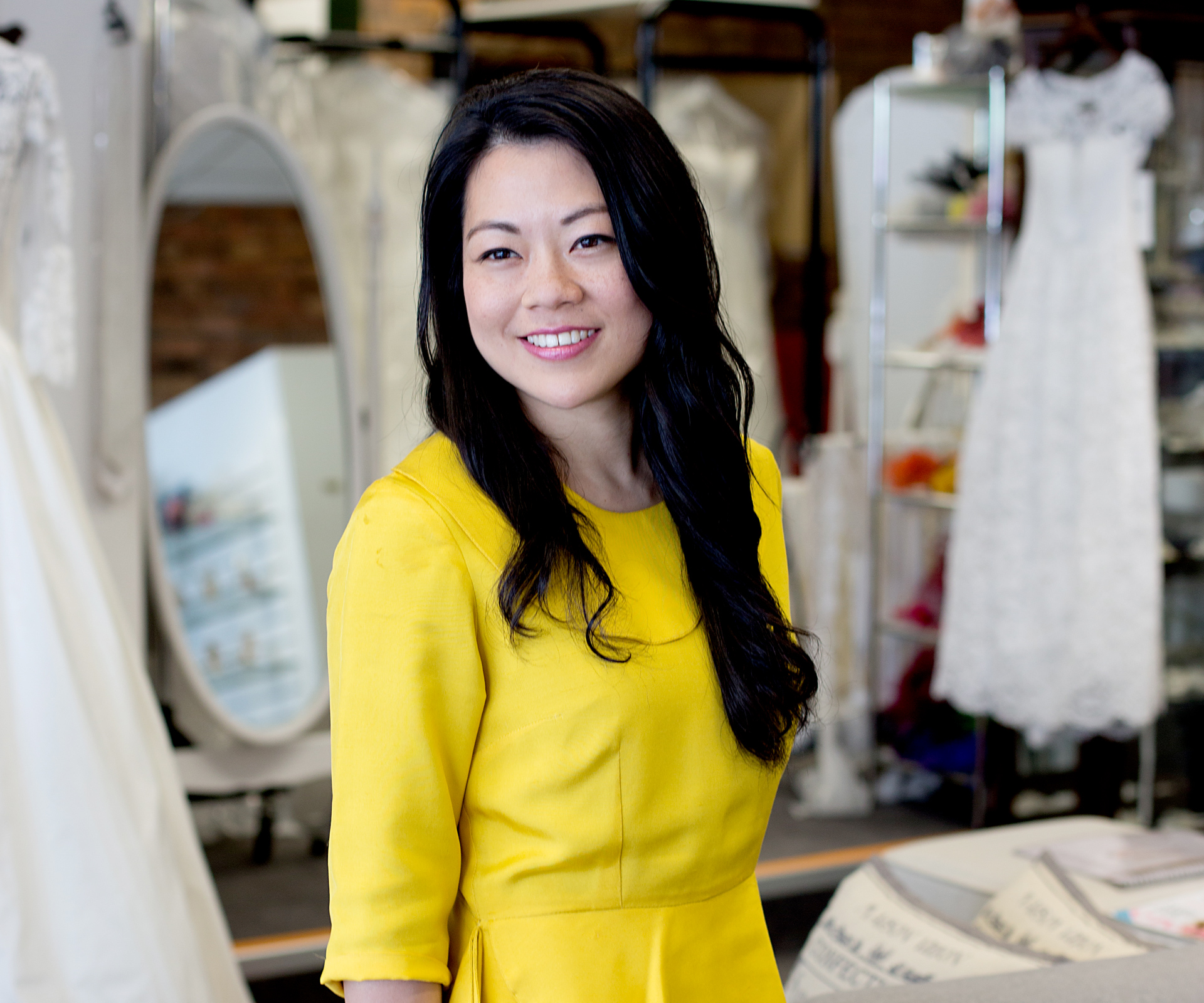
**Katie Yeung, 36
From property marketer to bridalwear designer**
Twelve years ago, Katie Yeung was a successful Auckland property marketer working gruelling 70-hour weeks. In 2004 stressed and unhappy, she broke down in front of her father. He surprised her by saying: “Do what makes you happy.”
That afternoon she began to sketch her first bridal designs. Now she owns one of New Zealand’s most successful couture bridal boutiques, Hera Bridal, on Auckland’s Karangahape Road, and this year launched her first ready-to-wear bridal collection.
Yeung’s parents brought her and her younger brother from Hong Kong to Auckland when they were children. Yeung, who had little English at the time, loved her new home: “It wasn’t a shock,” she says, “it was a playground!” – a reaction typical of her effervescent, positive nature.
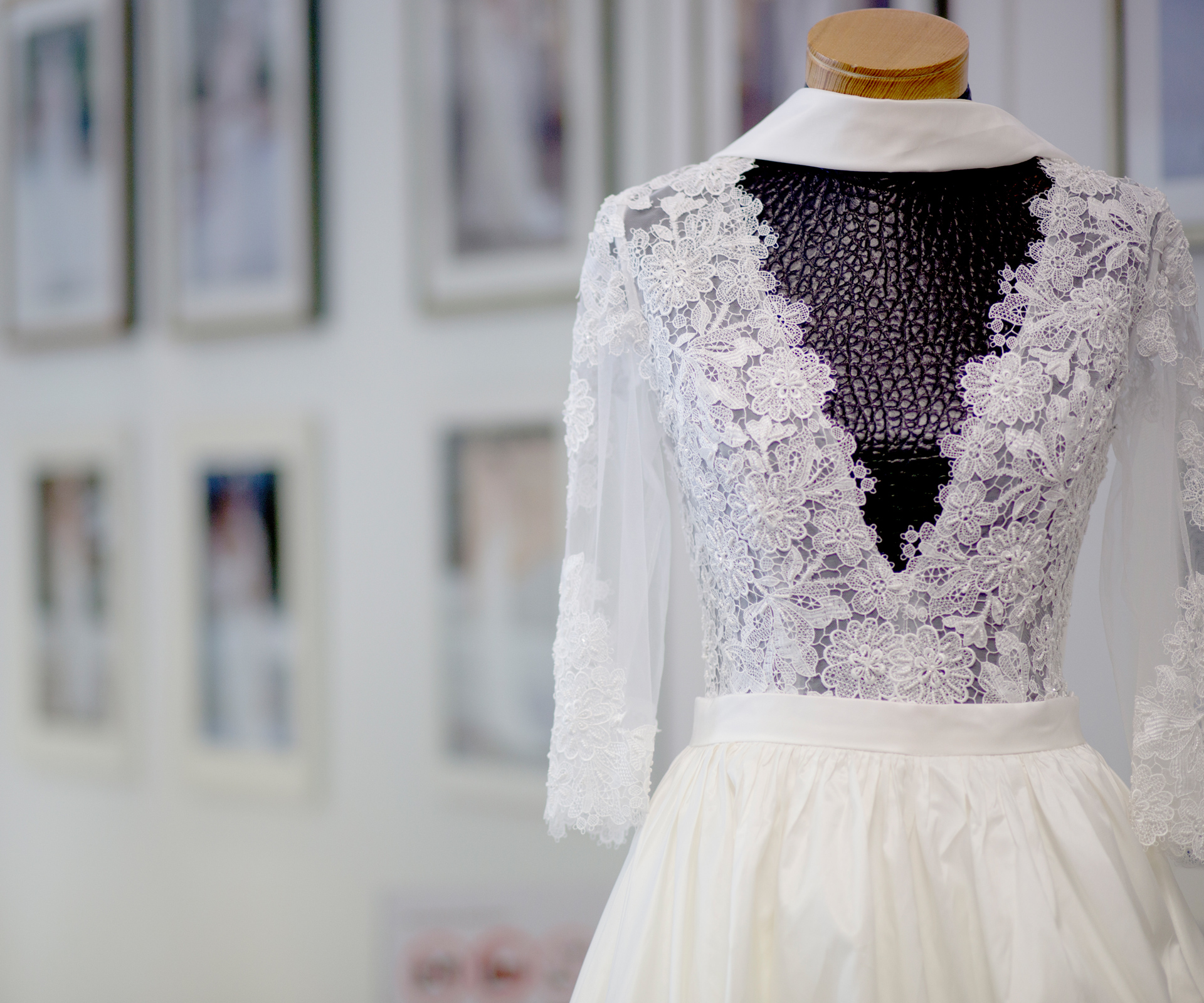
A love of fabric
Her mother had a dressmaking shop and Yeung remembers watching her pin hems and drape fabric, and the smiles of delight on clients’ faces. It was this “beautiful process” that stayed with her through her most difficult days in property. Yeung began sewing at eight – her mother taught her everything she knows – and always had a passion for beautiful fabrics.
“Mum taught me things you can’t learn at design school, for example corsetry using soft bones is a real art and takes years of practice.”
Despite her love of dressmaking, it never figured in her initial career plan. Her parents had brought the family to New Zealand for education, and a university degree was the only option. Yeung graduated from Auckland University in 2001 with conjoint property and marketing degrees, happy with her choice and keeping sewing as a much-loved hobby.
Soon after graduating she was snapped up by a large Auckland property firm, advising developers on business growth. Working weeks were long and clients’ and bosses’ expectations were high. Yeung’s bank balance soared but the personal trade-off was vast.
“I love property but working in that industry wasn’t me. It felt like I wasn’t on the right side.”
Before she quit she asked herself daily: “Do I want to do this every day for the next 10 years?” Eventually, her creative side won out and, after the conversation with her father – for parental approval was essential – she began designing in her spare time.
Yeung quit in 2004, aged 24, and began selling her designs at a Saturday market. If it wasn’t for the support of friends and family she might have given up.
“I was standing on the street, selling my garments. I had no money. People looked down on that.”
After five years of hard work – including opening an import fashion store on Auckland’s Queen Street – saving every dollar she could towards her bridal boutique goal, Yeung opened the doors of Hera Bridal. Seven years on, her gowns are featured in the top bridal magazines.
Her point of difference, she says, is the luxurious fabric and unique lace (she travels overseas to hand-pick fabrics costing up to $500 per metre, and as soon as she sees it elsewhere in New Zealand she stops using it), and genuinely caring about her customers.
“I love seeing the finished product on the bride; it’s wonderful. You know you have done something nice for someone. If I get to do this for the next 20 years or more, I’ll be happy!”
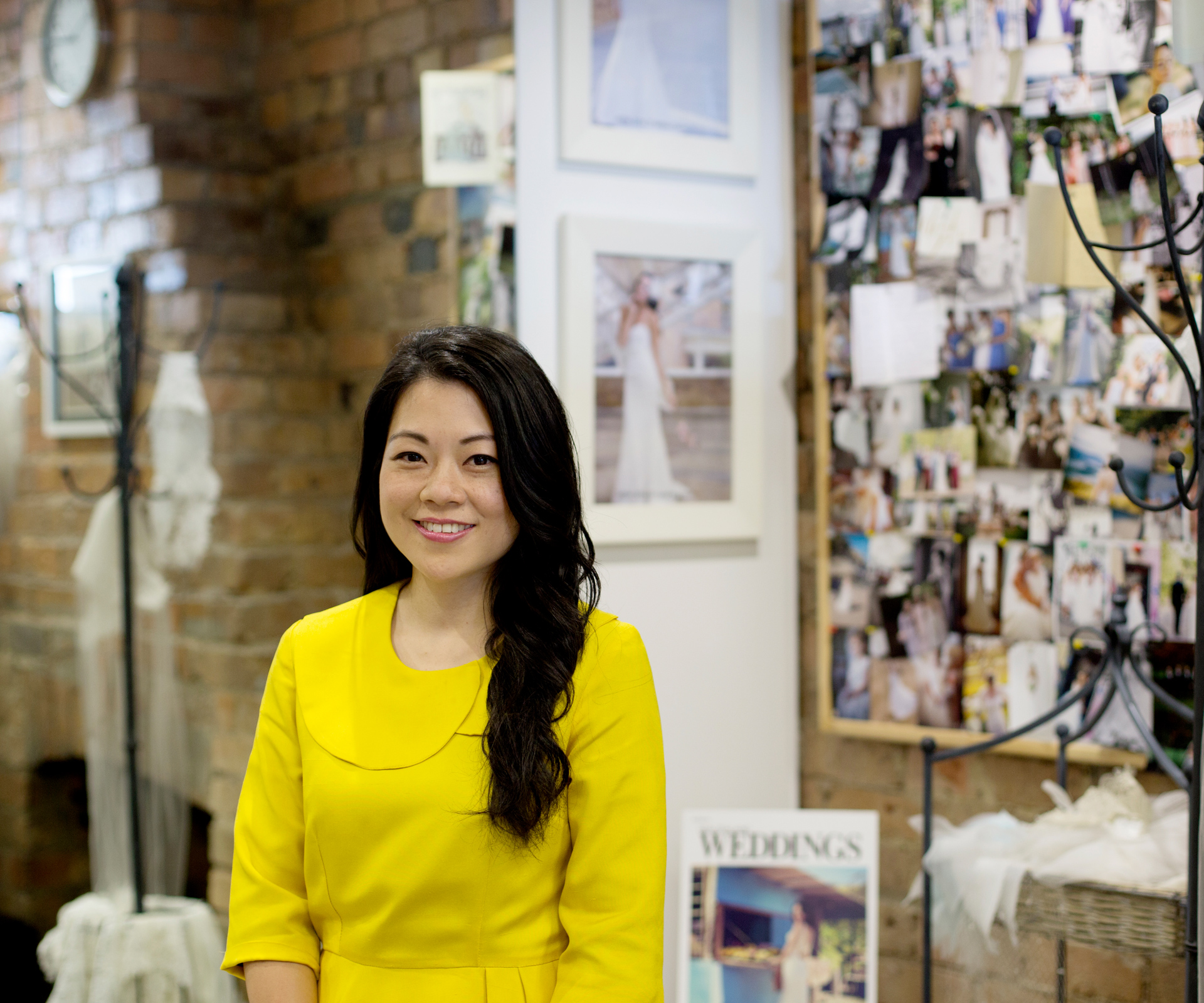
Just do it
Owning a business has its challenges and Yeung has had to learn how to manage staff (she has three full-time staff and several contractors in Auckland, and an atelier in Hong Kong) and how to deal with international supply contracts.
Now Yeung and husband Cliff also have 22-month-old daughter Chloe; she has rejigged her work hours to spend more time with her daughter. After putting Chloe to bed, Yeung works until late, then gets up at 4am to begin her working day, fuelled by double shot espressos and plenty of fresh fruit.
But none of it feels like work, because she is doing what she loves. In fact, ask her what her favourite downtime activity is and she’ll tell you it’s hunting for beautiful fabric.
Yeung believes hard work and family support are the keys to a successful career change. But the most important element, she says, is to do something you are passionate about. Don’t wait, just do it. She also has sage advice for those considering a change: “If you’re not willing to sacrifice time, or you’re a procrastinator, don’t do it.”
And with her heartening trademark positivity Yeung urges those unhappy in their jobs to look for the positive: “There’s something keeping you there. And if there’s nothing, get out. Use the positive to fuel your next project.”
Words: Caroline Barron
Watch: The latest Offspring trailer


